Listeners:
Top listeners:
-
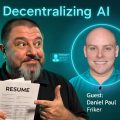 play_arrow
play_arrow
Decentralizing AI - Navigating the Future of Work with AI
-
 play_arrow
play_arrow
Life Tips - From Video Games to Virtual Reality: Henry Woodman's Journey
-
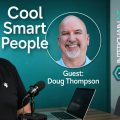 play_arrow
play_arrow
Cool Smart People - The Art of Storytelling in Tech
-
 play_arrow
play_arrow
Old Tech - Integrating Old and New: The Future of Technology
-
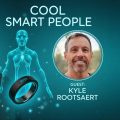 play_arrow
play_arrow
Cool Smart People - Revolutionizing Diabetes Care with Technology
-
 play_arrow
play_arrow
Life Tips - From Trauma to Triumph: Alan Lazaros' Journey
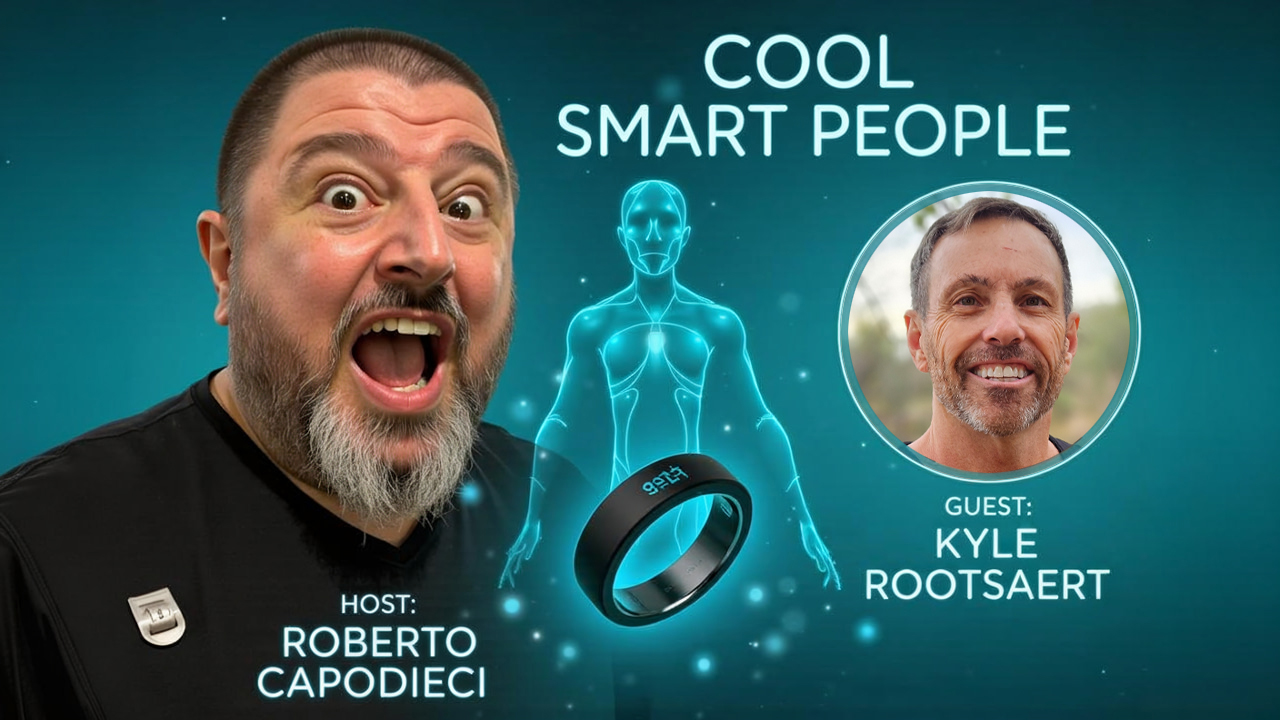
- arrow_back Home
- keyboard_arrow_right Cool Smart People
Measure, Don’t Guess: Kyle Rootsaert on Sensors, Insulin, and Real-Time Coaching
Cool Smart People Roberto Capodieci 22 August 2025
Guest: Kyle Rootsaert, PharmD
Show: Interchain Me – Cool Smart People
Listen to the Podcast
Kyle started as a small-town pharmacist answering tough questions at the counter. One day a patient asked a simple thing: “I’m diabetic. What should I eat?” He did not like his own answer. That gap pushed him into continuous glucose monitors, smart rings, and building an AI coach that teaches people what their own bodies are doing in real time.
His core belief is blunt: diabetes is a glucose problem driven by insulin dynamics. If you don’t measure, you are guessing. If you measure continuously and adjust behavior, outcomes improve.
Not medical advice. Always work with your clinician, especially if you use insulin or prescription meds.
Why this matters now
Three blunt truths from the conversation:
-
Snapshots lie: finger-sticks are photos; CGMs are the movie. You need the curve, not a few dots.
-
Insulin drives the bus: more carbs mean more insulin; chronically high insulin means resistance; resistance links to weight, BP, lipids, and type 2 diabetes.
-
Personal beats generic: oatmeal can be “healthy” and still spike you. Only your trace tells the truth.
What Kyle is building
A real-time education loop that connects lifestyle to metabolism.
-
Sensors: continuous glucose monitor for minute-scale glucose; a smart ring or watch for stress, sleep, HR, HRV, SpO2.
-
Signals he cares about:
-
Time in Range and Glucose Variability, not just A1C.
-
Dawn effect and cortisol surges before waking.
-
Stress spikes that push glucose 100 points without a bite of food.
-
-
AI coach: ingests streams from phone and wearables, learns your responses, and nudges you now, not next month.
-
“You spiked at 11:12. Go for a 10-minute walk.”
-
“Sleep score was 55. Expect cravings and higher glucose. Front-load protein, walk at lunch.”
-
“Arguments from 17:00 to 18:00 correlate with 180 to 200 mg/dL. Try a decompress routine before going home.”
-
Not another “eat less, move more” script
-
Counter to the scale obsession: track fat mass and metabolic signals, not just weight.
-
From fear to tools: eight hours of scare-education does not change behavior. Seeing your own glucose jump after a “healthy” bowl of oats does.
-
Practical physiology: lower the spikes, lower insulin, increase fat oxidation. Many people will see better BP, triglycerides, HDL, energy, and appetite control.
-
Individual response is king: food, sleep, stress, and timing interact. Measure your response, then adjust.
AI is the co-pilot, not the doctor
Use tech to count and correlate; use judgment to change.
-
Pair streams: ring scores plus CGM curves reveal how bedtime, arguments, caffeine, or late emails move your glucose.
-
Close the loop: actionable nudges in the moment beat generic weekly summaries.
-
Caregiver mode: passive monitoring for at-risk relatives is coming. If Grandma’s sleep tanks and resting HR climbs, someone should know.
Tradeoffs and reality
-
CGM lag: sensors read interstitial fluid, not blood; expect a 10 to 15 minute delay.
-
Behavior change hurts: sugar is addictive; stress management is a skill; environment matters.
-
Privacy and coverage: not all labs or devices are covered; sharing streams has tradeoffs.
-
Views on lipids and statins: Kyle is openly skeptical of LDL-centric approaches. Discuss any changes with your clinician.
Who this is for right now
-
People with prediabetes or type 2 who want data-guided change
-
Quantified-self types who already track sleep, HRV, steps
-
Coaches and clinicians building remote programs with CGM and wearables
-
Caregivers who need early warnings for loved ones
My take
Kyle’s edge is ruthless practicality: measure, correlate, act. He is not selling a diet. He is selling feedback. When people can see their own spikes and the walk that fixes them, compliance stops being faith and becomes physics.
Pull quotes
“Finger-sticks are photographs. CGMs are the whole movie.”
“If you are not measuring glucose, you are guessing about a glucose problem.”
“Stress alone can take you from normal to 200. Learn it in real time, then defuse it.”
How to participate
-
Get a baseline: talk to your clinician about CGM or, at minimum, structured finger-sticks around meals for a week. Log fasting, 60, 90, 120 minutes.
-
Track the right metrics: Time in Range and Glucose Variability. Aim to increase TIR and smooth the swings.
-
Pair with a wearable: log sleep score, HRV, resting HR, and subjective stress. Note arguments, deadlines, late meals, and alcohol.
-
Run experiments:
-
Breakfast A vs. B on different days, identical sleep and timing.
-
10 to 15 minute post-meal walk vs. none.
-
Early dinner vs. late dinner.
-
-
Remove obvious triggers: identify foods that give you a 40 to 60 mg/dL surge; swap to protein and fiber first, move carbs later if you tolerate them.
-
Build a stress buffer: 5 minute breathe or walk before high-friction hours; expect lower spikes.
-
Sleep like it matters: consistent bedtime, dark cool room, no late caffeine. Your next-day curve will tell you if it worked.
-
Get coaching: if you want structure and real-time education, Kyle’s model is built for that.
Credits
Recorded for Interchain Me. Host: Roberto Capodieci. Guest: Kyle Rootsaert
Search
Sign up to Interchain Me Newsletter
Blog News
Apply to be a guest
🎤 Want to be a guest on one of our podcasts? Whether you’re an expert in blockchain, a tech enthusiast, or an AI aficionado, we’re looking for guests across all our series, including “Life Tips,” “New Tech,” “Old Tech,” and “Past Predictions.” Share your insights, experiences, and expertise with our audience! Apply now for a chance to join us as a guest. 🎙️✨

🎧 Got a topic in mind for our next podcast? Help shape the conversation by suggesting an episode idea! Choose from categories like “Cool Smart People,” “Decentralizing AI,” “Learn with Rob,” “Life Tips,” “New Tech,” “Old Tech,” “Past Predictions,” “Rob’s Memory Lane,” and “Throwback Thursday.” We’re eager to hear your ideas and create content that resonates with you. Share your suggestion today!
(C) 1974-2024 Roberto Capodieci
Be the first to leave a comment